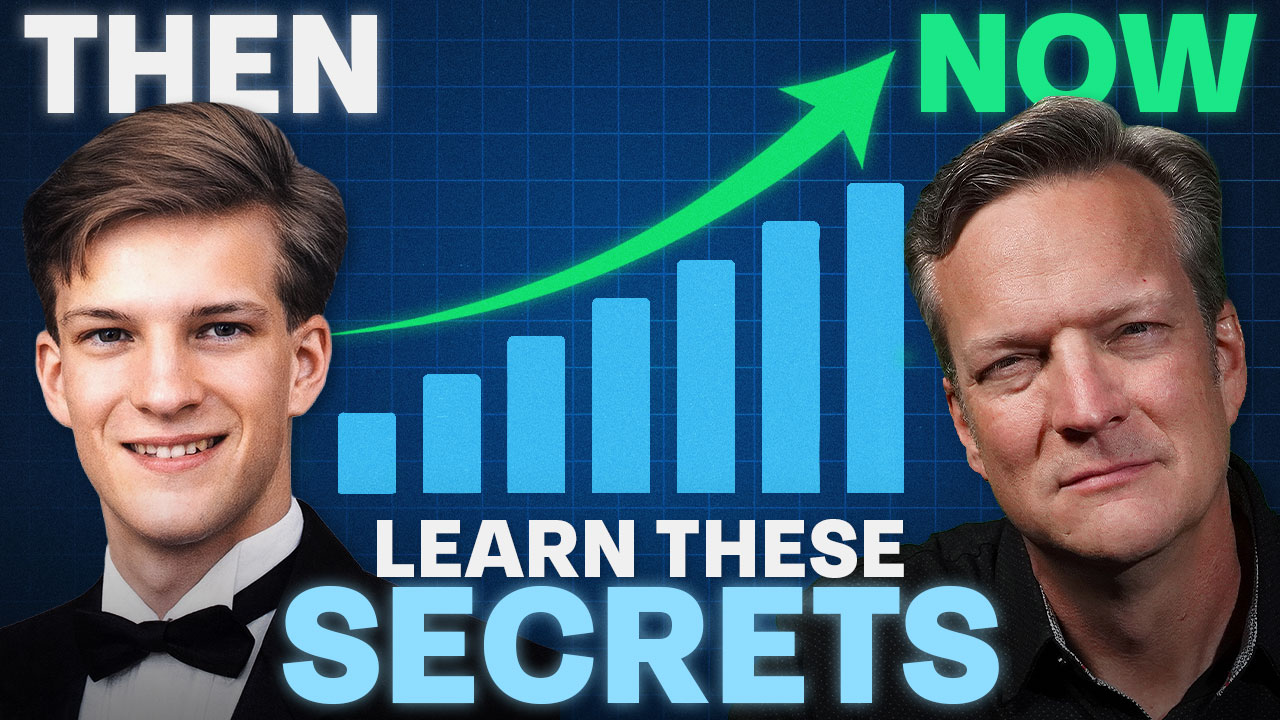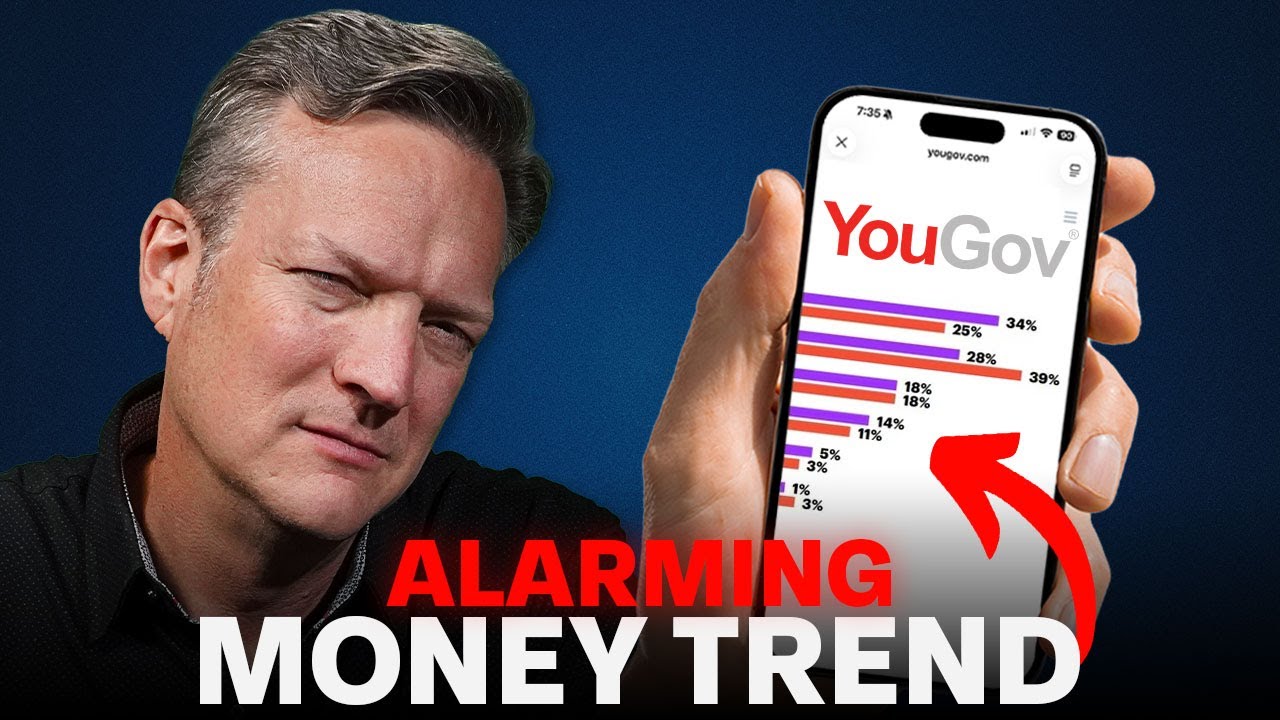I think whether you come from humble beginnings or you come from affluent beginnings, I think that this permeates the socioeconomic gap. We learned very early on that hard work is good, and learning to work hard early – the earlier you figure that out – is really, really, really good for wealth-building. Yeah, I figured out long ago that some of those first jobs or even the skill set of appreciating hard work can be extremely valuable. One of the reasons we did this show was because I saw on social media that Barbara from Shark Tank had a clip. Now, it's a much longer clip, and we've only grabbed the certain opening part that really pertained to where we wanted to point out how maybe coming from humble beginnings, you have a different experience with hard work and job experiences. Yeah, check out her perspective here.
Kids on Shark Tank come with a couple of stirred me ups because they had the right contacts, so they had the right apprenticeships in different companies in their summer months when they're teenagers. You know, they get the right introductions. Okay, poor kids are usually waiting tables and scrapping, dealing with customers, spilling coffee, and getting shouted at. A little different, ain't that the truth? Is that the truth? And that's what I want to kind of focus on. I think about, you know, I think I'm unique in the fact where my brain processes is that memories are just so strong for me. And I can remember the exact moment that kind of my life was turned on, focusing on hard work. Whenever there was a tree, you know, bad storms, trees going down, my Dad loved to cut firewood. And he would drag me out on those, and I hated it. But because it would be him and his friends out there working the chainsaws and then how it's supposed to split the firewood. And I used to complain, and I remember my dad was like, "Son, you're making everybody miserable. Why don't you just work hard?" And I was like, "You know what? I'm going to just bust it today." And I remember the day I did it and I impressed the heck out of my father and all of his friends. And I was like, "Wait a minute, there is something really valuable to actually doing more or exceeding expectations." And that's the people-pleasing sodomy was awoke, you know, really woke up during that moment. And I've kind of taken that, and then I thought there was something you got from it. Like the hard, you were working hard, but there was this other thing that you received that you were like, "Oh man, that it was made, it was a tremendously valuable lesson." But I think tied into what Barbara was talking about, I think about my fast food experience. I've talked about that. If you think about flipping burgers, it can be a skill-developing extravaganza. I mean, it really can, because think about this, it ties in exactly. I worked at Hardee's all through high school. I was making 3.85 cents an hour, so it's not like it wasn't a wealth-building exercise. But if I look at customer service, because that's what she's talking about when you were spilling coffee, waiting tables, and getting yelled at, you quickly realize that the general public is crazy. I mean, I figured that out very quickly. You've heard me tell stories of that. I had the same gentleman coming every week and stealing cookies off the plate. And it is this, you know, as a worker, you'd have to, "Alright, he's gonna steal the cookie. What am I going to do? You know, how are you gonna handle this?" You know, I dealt with, you know, difficult people who were yelling and other things. And I figured out very quickly that people skills were something that I could lean into. And this was not only just the customers, bosses. I mean, when you work fast food, you know, sometimes your assistant managers and managers are going to be from different backgrounds as well. You have to deal with them, problem-solving. I mean, because people are hungry, they're angry. And you know, you go through a drive-through, think about yourself when you go through a drive-through and two things are missing from it that you paid for. Ticked off, you were upset. So when you come in, the person that can make you feel better and turn that negative experience into a positive experience, that's a skill set. And you see that with kids all the time when I go through.
And leadership, I mean, when I got to be crew leader, I know it sounds so ridiculous now, but it was a valuable thing. That was leadership, the skill set. I became a jack of all trades. And the fact that I think about fast food, flipping burgers, I think about waiting on people, I think about plumbing, I think about my lifeguard years, I think about when I was handling baggage at airports, I think about driving a bus all through college. Every one of those unique quirky jobs, I have a skill set that I could have put in today's show that's still valuable right now, even though I work in none of those different careers. I love this, and I love that you learned that circle. I mean, you were in high school, and you ended up getting that job at Hardee's, and ended up doing that. You know, when I was growing up, I didn't have a lot of stability in my early childhood years. All I really had was athletics. Athletic was like the one stable thing. And so I learned tons of stuff from team sports and working hard, work ethic, and how to win well and how to lose well. But then after I was adopted with the new phala, I was living with, they had this rule. You could either work full-time or not work full-time. You have a job or be a full-time athlete. So all through high school, so long as I was not letting my grades slip and I was performing well in athletics, I didn't have to have a job. But once the baseball thing sailed, which I wasn't going to do that anymore, I recognized, holy cow, if I want to go out and go eat Taco Bell at 2 A.M or if I want to take a girl to the movies, I better have some money. And there was no money back behind me. It was just on me. And so I got my first job because I needed, like, I was in college, I needed to figure out how to go do that. So I went to Chili's, and I was like, you know, I'll start waiting tables. Well, here's what was great about the food service industry. There's, hey, what's your experience? I was like, oh man, well, I can hit a baseball pretty far. Like, well, that doesn't translate real well in the restaurant. So I had to start as a host. Right. They don't let you start that. So, you know, that's the person that when you walk in, they're sitting there, how many do you have in your party? They've got to figure out where to seat you, and it's wild. Like, on a Friday night in a college town where there's all these people, they're trying to get to a movie. Again, they get ticked off. But even doing that role was amazing. I learned how to communicate with folks. I learned how to tell someone, hey, there's a two-hour wait, and here's why you shouldn't be upset about that. Yeah, or hey, I'm so sorry, I noticed that you got skipped up. Like, it was wonderful. And then I was able to work through that, and then I got to actually reach the coup de gras of being a server. And I loved that job. It was my second favorite job I've ever had in my entire life because I did learn how to multitask, how to take care of a bunch of different things at one time. I learned customer service. I learned how to de-escalate situations, like when someone's ticked off. If you can figure out how do I put myself on the same side of the table as them, not literally, but like figure life on the same side of the table. It's amazing how well that skill can translate later on in life. It's amazing how well that empathetic skill set can translate into marriage, into having kids, and into interpersonal corporation work. And then I learned sales. Yeah, like I think that was so amazing. Like, again, I worked at Chili's, right? So Margarita Madness was this thing. I love the competitive nature, trying to, like, slang some margaritas. It was amazing. And I think some of the ways I learned about how to talk to people in that environment allowed me to excel in other areas later in life. So I would not trade that first job experience for anything because there's so much that I was able to take away from. And I'm so happy that that wasn't something where I was just sitting at a computer or like doing something in my room digitally. Like, I'm glad that I had to be with the people in front of the people around the people because it was amazing.
Well, I look because we let's actually talk about the takeaways from this. I love that nurturing your work ethic and hard work is rewarded, and the sooner you can figure that out, the better for you and your future. I love the honing of EQ skills, that's challenging yourself to disarm, sway even, you know, turn the worst customers into raving fans for the business. If you think about also don't ruin your kids, that's a great one. I mean, because this is one that I encouraged, you know what's interesting now having children, and I worry about ruining my kids all the time because I deal with clients, and you see when you have resources that sometimes the dividend from that is not always good, it's not a positive thing.
So I try to pay it forward. Get your kids to take that first job. I mean, I want it. I encourage my daughter to work at the local Chick-fil-A because I want her to pick up those exact same skills that I had gained, the same experiences. I love the stories she comes home and tells me. It shows me, yeah, people are still crazy. It's still the same, still, you know, skills that drove me to success. It's also helping her with dealing with the general public. So give them a reason to work, build some scarcity in their life so they actually develop the desire and the appreciation for what hard work can do for you.
And there are different stages to this, right? There are different stages depending on if you have young children or if you have older children. My kids, I'm not going to tell them to go out and get a job, but when we got back from the lake this weekend, I said, "Hey girls, your job. You've got to unload the car. Hey, you've got to take your bag upstairs. You've got to unload that. Hey, you've got to get stuff in the laundry room." So they understood that this fun weekend that we had, there's some hard work that even has to go into being able to do those sorts of things.
And now, this is going to be a bit of a hot take, a little bit of an unpopular opinion, but I've talked to so many folks who say, "Hey, you know what? I just want my kids in high school to focus on their grades. I just want them to focus on school." I'm like, "Your kids never made a B in their life. What do you mean, focus on their good?" Because when you get into the real world, you're going to have to kind of learn how to balance this part of your life with this part of your life and this part of your life. So I am going to advocate. Now we'll see if I actually follow through with this, but I love that you had your oldest daughter get a job while she was in high school. Like, she had to learn that skill set. I would like to do the same thing with my kids because it does teach you how to balance the different areas and facets of life. And I'm so glad I was able to figure that out early. I don't want to rob my kids of that exact opportunity.
Well, multitasking, you said it earlier. If you can, you had to do it with athletics. I had to do it with work as well as school. I think that if you can get those skill sets early, it just makes you better. Practice makes you better at that very powerful skill set. For more information, check out our
free resources.













